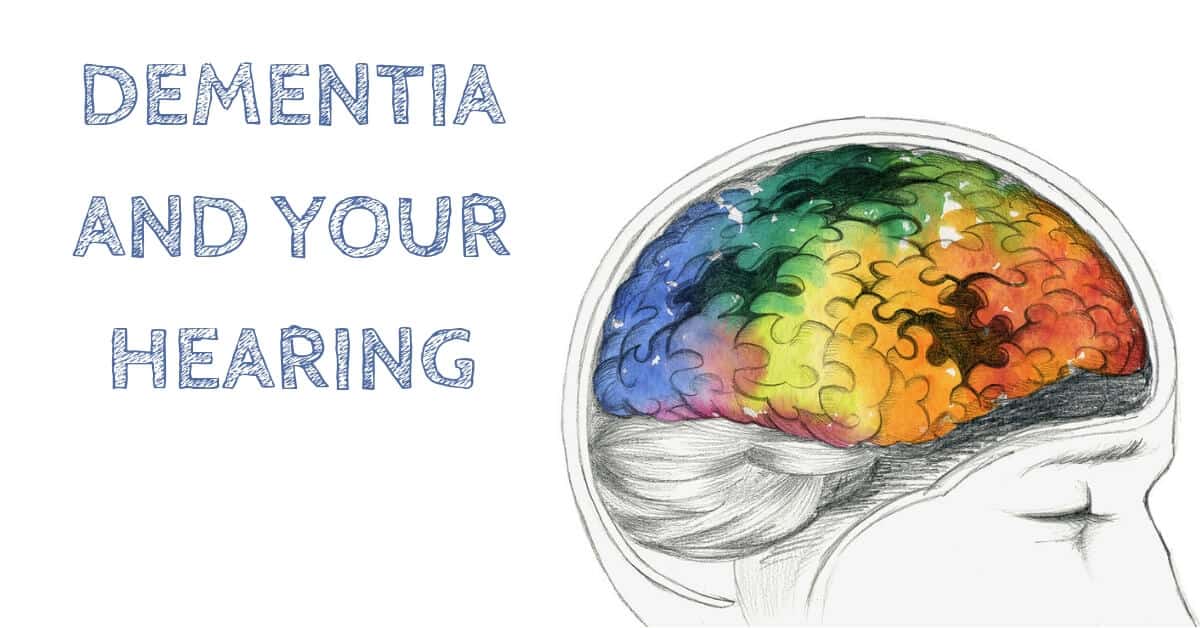When it comes to your health, it pays to think of how deeply the different systems of the body depend upon each other. While many people view their hearing as an isolated bodily sense, in truth it is thoroughly involved with our cognitive processes. When we have trouble with our hearing it can cause a disturbance in our entire mental functioning, even escalating conditions as serious as cognitive decline and dementia.
With September being World Alzheimer’s Month, we want to raise awareness about dementia and how protecting your hearing health can help reduce your risk of developing Alzheimer’s disease. As we age, our bodies become more susceptible towards both hearing loss and cognitive disruption. Understanding these conditions and how they relate to each other is part of staying healthy.
Recognizing Dementia
Dementia is a progressive cognitive disease that severely compromises our mental functioning. Marked by confused thinking, dementia disrupts daily life and drastically limits those it affects. Memory issues form a cornerstone of dementia symptoms – memory loss, misplacing objects and confusion are all signs of developing dementia. An inability to keep track of dates and responsibilities and difficulty performing everyday tasks are also signs of cognitive issues. Those with dementia are prone to disorientation and often have trouble properly perceiving spatial relationships. Problems with language are also often present.
Signs of dementia sometimes present as other mental health issues. Social isolation is linked to Alzheimer’s disease, as is depression and mood changes. People with dementia also exhibit poor or erratic judgement. All signs of other mental health issues, these symptoms can be a result of the severe cognitive problems dementia produces
The exact cause of Alzheimer’s disease and dementia isn’t fully understood, but nine health factors play a big role in increasing a person’s risk. Alzheimer’s disease is more prevalent in people who ended their schooling before their teens. Smokers and diabetics are also more inclined towards dementia. Health issues arriving in middle age such as obesity and hypertension increase risk, and in general a lack of exercise and activity will contribute to dementia vulnerability. Social isolation and depression, especially late-in-life mental health issues are also warning signs of deeper cognitive issues.
The ninth serious risk factor? Hearing loss.
Hearing Loss and Dementia
How we hear is innately linked to how our brain works. The auditory system senses sound waves in the air, translates those waves into electrical signals and transmits the electric pulses to the brain. The brain interprets incoming information processing a sound’s meaning and direction at a near instantaneous pace.
Most hearing loss begins in the inner ear. The tiny cells that act as sound sensors are called hair cells and they are a critical and fragile part of the auditory system. Many factors including loud noise and infection can damage a hair cell and permanently remove it from operation. Hair cells do not possess the ability to recuperate from damage, and so injured hair cells create permanent hearing loss. If enough hair cells are affected, hearing loss significantly limits the parts of sound that are delivered to the brain.
In the brain, receiving incomplete signals that represent a sound strain the mind’s capacity to successfully interpret and respond to incoming noises. When the brain is asked to parse sound, it does not have full information about, it has to work much harder and longer to successfully piece together meaning. This means more cognitive energy and focus are drawn into interpreting sound – and away from other functions. Cognitive functioning can become severely skewed towards comprehending sound, shortchanging other essential tasks. The redistribution of mental effort can atrophy the neural paths developed in a healthy brain, making cognitive functioning more chaotic.
This mental strain is at the heart of how hearing loss contributes to cognitive disorder. Hearing loss also makes people vulnerable to other mental issues such as social isolation and depression, creating conditions that may reinforce the groundwork of dementia.
Hearing Help
There is good news: while most hearing loss is permanent, hearing loss can be effectively treated. Use of hearing aids can diminish mental strain, create healthier listening and improve your quality of life. Is it time to stay on top of your hearing health? Now’s the time to set up your next annual hearing exam with Desert Valley Audiology.

